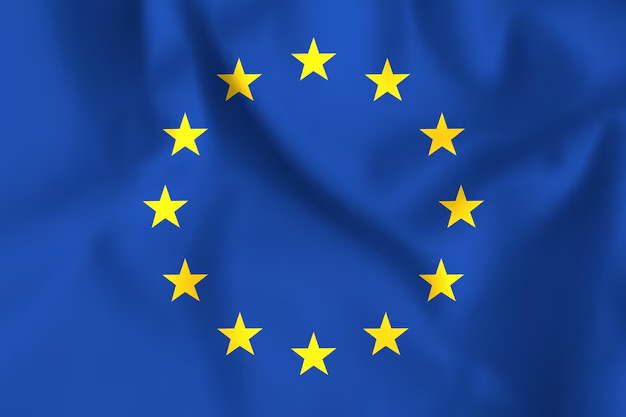
EU and German Embassy Launch Bold Initiative to End Gas Flaring in Nigeria Amid Climate Concerns

In a landmark development aimed at tackling one of Nigeria’s most pressing environmental and economic challenges, the European Union (EU) in collaboration with the German Embassy has unveiled a comprehensive initiative to combat gas flaring across the country. The initiative, announced during a high-level event in Abuja, marks a major stride in Nigeria’s decades-long battle to reduce its carbon emissions, harness wasted energy, and promote sustainable economic growth in the oil and gas sector.
Gas flaring, the burning of natural gas associated with oil extraction, has long plagued Nigeria’s energy landscape. Despite multiple policy interventions and legal frameworks, the country remains one of the world’s top gas-flaring nations, losing billions of dollars annually and releasing significant amounts of greenhouse gases into the atmosphere. The newly unveiled EU-German project seeks to reverse this trend by combining advanced European technology, technical expertise, and policy support to accelerate Nigeria’s transition toward clean energy practices.
At the unveiling ceremony, the Head of the European Union Delegation to Nigeria, Ambassador Samuela Isopi, reaffirmed the EU’s commitment to supporting Nigeria’s climate and energy goals. She emphasized that the initiative was designed not only to curb gas flaring but also to create a sustainable pathway for Nigeria to achieve energy efficiency and net-zero emissions in line with the Paris Climate Agreement. According to her, this collaboration is a vital part of the EU’s broader Green Energy Transition Programme for Africa, which focuses on reducing carbon footprints while enhancing access to affordable and reliable energy across the continent.
The German Ambassador to Nigeria, Annett Günther, also expressed Germany’s readiness to play a central role in supporting Nigeria’s journey towards a cleaner and more sustainable energy future. She noted that the German government, through its development agencies such as GIZ (Deutsche Gesellschaft für Internationale Zusammenarbeit), will provide technical support, policy advice, and capacity-building initiatives targeted at local oil and gas operators. “Nigeria has enormous potential to lead Africa in clean energy development,” she stated. “Our joint effort with the EU aims to ensure that the gas currently being wasted through flaring is captured and utilized for power generation, industrial use, and domestic consumption.”
The initiative, which is expected to run for an initial five-year period, will focus on four key areas: developing infrastructure to capture and process associated gas, enforcing stricter environmental regulations, supporting private sector investment in gas utilization, and empowering local communities affected by flaring. Officials revealed that the first phase would target high-flaring regions in the Niger Delta, where environmental degradation and public health issues caused by continuous gas flaring have reached alarming levels.
Nigeria’s Minister of Environment, Balarabe Abbas Lawal, who attended the event, hailed the partnership as a timely intervention that aligns perfectly with the federal government’s renewed drive to end gas flaring by 2030. He noted that Nigeria’s Gas Flare Commercialization Programme (NGFCP), launched several years ago, has faced numerous implementation challenges, particularly in terms of financing and technical expertise. With the support of the EU and German partners, he said, Nigeria can now accelerate the commercialization of flared gas for productive use. “This is a game-changer for Nigeria,” the minister declared. “We are talking about turning waste into wealth, improving livelihoods, protecting the environment, and boosting energy access for millions of Nigerians.”
Experts at the event also underscored the potential economic impact of the initiative. According to a joint study by the EU and Nigeria’s Ministry of Petroleum Resources, the country flares about 275 billion cubic feet of gas annually, representing a massive loss of revenue estimated at over $700 million per year. The gas flared could generate up to 3,000 megawatts of electricity if properly harnessed, significantly reducing Nigeria’s persistent power shortages. By converting flared gas into useful energy, the project could not only strengthen the economy but also attract foreign investments, create thousands of jobs, and support Nigeria’s industrialization agenda.
Environmentalists and civil society organizations have long called for more decisive action on gas flaring, which has devastated the ecosystem and endangered the health of residents in oil-producing communities. The EU-German intervention is therefore being hailed as a step in the right direction, one that could finally translate promises into tangible results. Community representatives present at the launch expressed optimism that the project would deliver real benefits at the grassroots level. They appealed to the government and international partners to ensure transparency, accountability, and community participation in all stages of implementation.
Meanwhile, the European Union highlighted that this initiative also fits into its broader agenda of supporting Africa’s green economy through the Global Gateway Strategy, a €300 billion investment plan for sustainable infrastructure development. The EU’s investment in Nigeria’s gas sector will not only focus on ending flaring but will also explore opportunities in renewable energy integration, methane emission reduction, and clean hydrogen production.
The German government, on its part, emphasized that the fight against gas flaring is not just an environmental issue but a moral and developmental imperative. Ambassador Günther stressed that Germany’s collaboration with Nigeria goes beyond financial aid—it is a partnership rooted in shared responsibility for the planet’s future. She pointed out that Germany’s own experience in reducing emissions and promoting energy efficiency would serve as a model for Nigeria’s transition.
As the ceremony came to a close, representatives of the Nigerian National Petroleum Company Limited (NNPCL) and the Nigerian Upstream Petroleum Regulatory Commission (NUPRC) pledged their full cooperation with the EU and German embassies. NNPCL’s Group Chief Executive Officer, Mele Kyari, noted that the company has already been implementing internal reforms aimed at capturing gas for domestic use and export. He said the new partnership would accelerate the company’s zero-flare target while fostering innovation and environmental responsibility within the sector.
Observers believe that this initiative could mark a turning point in Nigeria’s long-standing gas flaring crisis if effectively implemented. The collaboration signals a growing international recognition of Nigeria’s central role in Africa’s energy future and its potential to lead the continent’s clean energy transition. However, analysts also caution that the success of the initiative will depend on strong political will, effective governance, and consistent enforcement of environmental regulations.
For decades, gas flaring has been a symbol of both Nigeria’s vast energy potential and its developmental challenges. Billions of cubic feet of gas have gone up in smoke while millions of Nigerians remain in darkness. The EU-German initiative could finally rewrite that story—turning pollution into progress and waste into wealth. If the partnership lives up to its promise, it will not only transform Nigeria’s oil and gas sector but also set a new standard for sustainable development across Africa.
As the world intensifies its fight against climate change, Nigeria’s collaboration with the European Union and Germany may well become a defining chapter in the global transition towards a cleaner, greener, and more equitable energy future.

